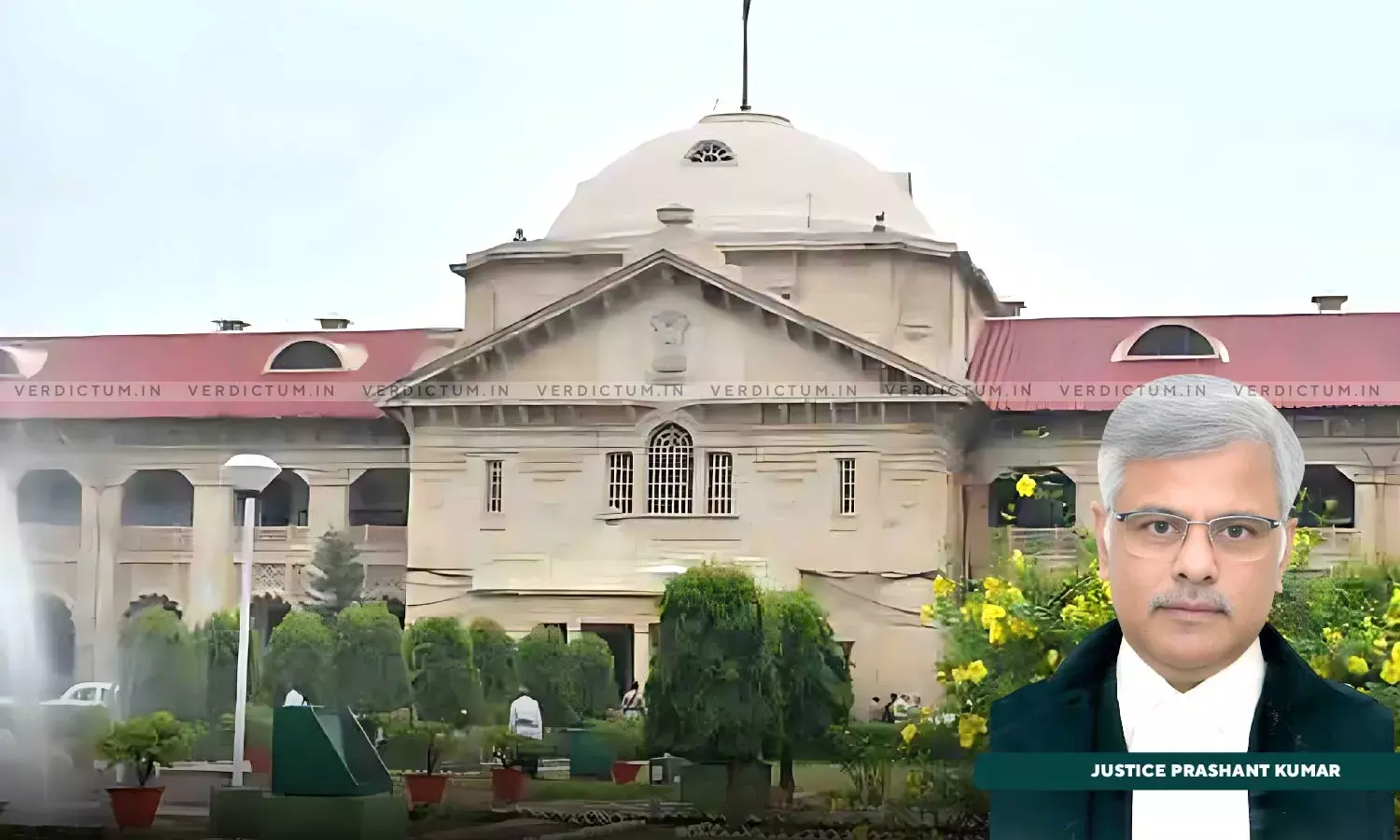All Directors Are Equally Responsible For Act Done On Company’s Behalf: Allahabad HC Refuses To Quash Cheque Bounce Complaint
The Allahabad High Court recently refused to quash a cheque bounce complaint observing that all the directors are equally responsible for the act done on behalf of the company.
The Court held thus in an application under Section 482 of the Criminal Procedure Code (CrPC) seeking quashing of the summoning order passed by the Additional Chief Judicial Magistrate.
A Single Bench of Justice Prashant Kumar observed, “Undoubtedly, a company is a separate legal entity, which can only be represented through its officers, directors, managing directors, chairman etc. if such a company commits an offence, it would normally be taken as an action of that individual, who has acted on behalf of the company. … The argument advanced by the counsel for the applicant that the other director, Narendra Singh Pawar had nothing to do with the transaction is also not correct. All the directors are equally responsible for the act done on behalf of the company.”
Advocate Amit Daga appeared for the applicants while AGA Shashidhar Pandey and Advocate Swetashwa Agarwal appeared for the opposite parties.
Facts of the Case -
The accused was summoned by the Trial Court for the offence punishable under Section 138 of the Negotiable Instruments Act, 1881 (NI Act). The complainant i.e., a private company was engaged in the business of Sponge Iron and Silicon Manganese and an order for supply of such item was placed by another company. The complainant company supplied the product and received a cheque of Rs. 1,07,05,318/- but the same was bounced because of insufficiency of funds.
Thereafter, the complainant gave a legal notice within a stipulated time and the buyer company did not pay the said amount, the complainant was left with no option but to file a complaint under Section 138 of NI Act before the Chief Judicial Magistrate. Once the summons were issued, the accused who was signatory of the cheque, filed an application in which the High Court issued notices to the opposite parties and stayed the further proceedings. Therefore, the Trial Court could not proceed since last 8 years and the pleadings were complete and the matter was ripe for hearing.
The High Court after hearing the contentions of the counsel noted, “In view of the aforesaid facts and circumstances and the ratio laid down by the Hon’ble Supreme Court in the judgement of A.C. Naraynan (supra), that the power of attorney holder, who filed the complaint clearly needs to aver that he has knowledge of the complete transaction has been watered down by Hon’ble Supreme Court in the matter of M/s TRL Krosaki Reractories Ltd. (supra) wherein it is held that when a complainant is a company and authorized representative can represent the company, such averment and prima facie material is sufficient for the Magistrate to take cognizance in such cases.”
The Court said that it is a settled principle that if the payee is a company, the complaint has to be filed in the name of the company and Section 142 of NI Act does not specify as to who should represent the company, if the company is the complainant. It added that a company can be represented by an employee or even by a known employee, who is duly authorized and empowered to represent the company either by resolution or by a power of attorney.
“Further, where the company is a complainant, who will represent the company, and how the company will be represented in 138 proceedings is not covered by the Code. Section 200 of the Code mandatory requires an examination of the complaint, and whether the complainant is an incorporeal body, it is only one of its employee or authorized representative can be examined on behalf of the company. With the result, the company becomes a dejure complainant and the person, who is representing the company whether it is employee or the authorized representative becomes de facto complainant, thus, in every complaint lodged by a company, which is a separate juristic personality, there is a complainant dejure and a complainant de facto”, it further said.
The Court also observed that the application has been pending since last 8 years and the trial could not proceed, and hence, it is in the interest of justice that the trial may be concluded expeditiously in accordance with law, preferably within six months.
Accordingly, the High Court dismissed the application.
Cause Title- Ashok Sharma v. State of U.P. and Another (Neutral Citation: 2024:AHC:21054)
Appearance:
Applicants: Advocate Ashish Kumar Singh
Opposite Parties: Advocates Dinkar Lal, Dipendra Kumar, Pradeep Kumar Rai, Satendra Kumar, Suyash Agarwal, Ajay Kumar Singh, and Ashish Kumar Singh.



